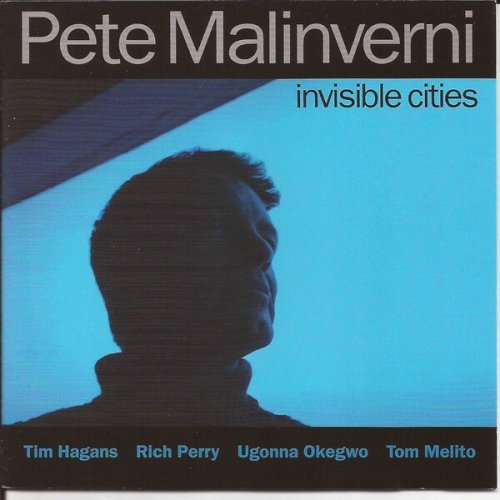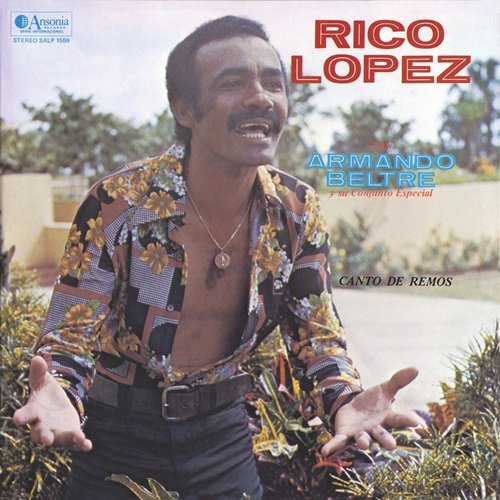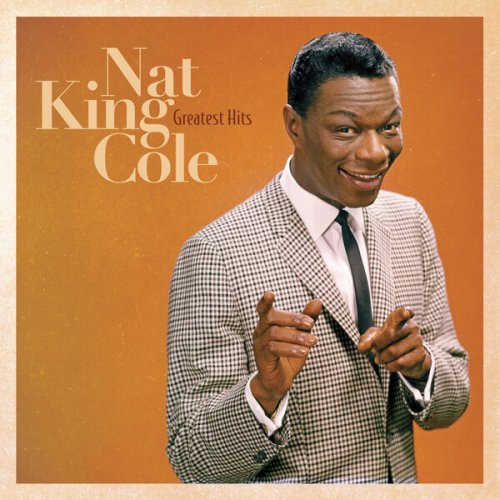Pete Malinverni - Invisible Cities (2008)

Artist: Pete Malinverni, Ugonna Okegwo, Tom Melito, Rich Perry, Tim Hagans
Title: Invisible Cities
Year Of Release: 2008
Label: Reservoir Music
Genre: Jazz
Quality: FLAC (tracks) / MP3
Total Time: 1:05:40
Total Size: 406 / 159 MB
WebSite: Album Preview
Tracklist:Title: Invisible Cities
Year Of Release: 2008
Label: Reservoir Music
Genre: Jazz
Quality: FLAC (tracks) / MP3
Total Time: 1:05:40
Total Size: 406 / 159 MB
WebSite: Album Preview
1. I Love Paris (06:07)
2. New Orleans-Cities & Desire (09:05)
3. Chicago (05:59)
4. Venice-Cities & Memories (07:27)
5. Cities & Time (04:02)
6. Lonely Town (07:56)
7. Istanbul (06:31)
8. Salem-Hester Prynne (06:29)
9. There's a Boat Dat's Leavin' Soon (06:19)
10. a City Called Heaven (05:41)
Many of the pieces on pianist Pete Malinverni's Invisible Cities were inspired in part by the book of the same name by Italo Calvino, though in Malinverni's case, the cities he portrays in his composition are not figments of his imagination. Recruiting a top-flight band for the date, including tenor saxophonist Rich Perry, trumpeter/flügelhornist Tim Hagans, bassist Ugonna Okegwo, and drummer Tom Melito, Malinverni delivers a CD with a striking mix of originals and familiar songs (the latter reshaped dramatically). The dark mood of the pianist's "New Orleans -- Cities & Desire" reflects the somber mood after the tragedy of Hurricane Katrina, with Hagans' mournful muted trumpet backed by the somber rhythm section. Malinverni blends several stylistic influences in his lively "Cities & Time," which is powered by an infectious ostinato bassline. The bittersweet "Salem -- Hester Prynne" is named for the scorned adulterer in Nathaniel Hawthorne's The Scarlet Letter, a moving portrait of a complex character. His interpretations of others' works are also essential. Malinverni's dissonant setting of the oldie "Chicago" is charming, highlighted by his off-center piano solo. The leader's heartfelt take of Leonard Bernstein's "Lonely Town" showcases Perry's lush tenor, while his rollicking piano is the centerpiece of the infectious scoring of George Gershwin's "There's a Boat Dat's Leavin' Soon for New York." It is hardly surprising for Malinverni to close the disc with the old gospel hymn "A City Called Heaven," as he has long been active as a music director in a Brooklyn church. His deliberate interpretation brings out the lyrical magic of this timeless piece. Highly recommended.
Review by Ken Dryden
Review by Ken Dryden
![Asher Gamedze - A Semblance: Of Return (2026) [Hi-Res] Asher Gamedze - A Semblance: Of Return (2026) [Hi-Res]](https://www.dibpic.com/uploads/posts/2026-02/1772032727_a2374104512_10.jpg)


![Samir Aouad - Casablanca (2026) [Hi-Res] Samir Aouad - Casablanca (2026) [Hi-Res]](https://img.israbox.com/img/2026-02/26/cpef8nay7or1kmufgugfd6uy0.jpg)


![Fabiano do Nascimento - Vila (2026) [Hi-Res] Fabiano do Nascimento - Vila (2026) [Hi-Res]](https://img.israbox.com/img/2026-02/26/o4t38f6qf24pvc3bqzanbhsz3.jpg)
![Charlie Jung - Kailash Band (2026) [Hi-Res] Charlie Jung - Kailash Band (2026) [Hi-Res]](https://www.dibpic.com/uploads/posts/2026-03/1772463390_cover.jpg)
![Bill Frisell - In My Dreams (2026) [Hi-Res] Bill Frisell - In My Dreams (2026) [Hi-Res]](https://www.dibpic.com/uploads/posts/2026-02/1772013732_tpex4dl25956z_600.jpg)